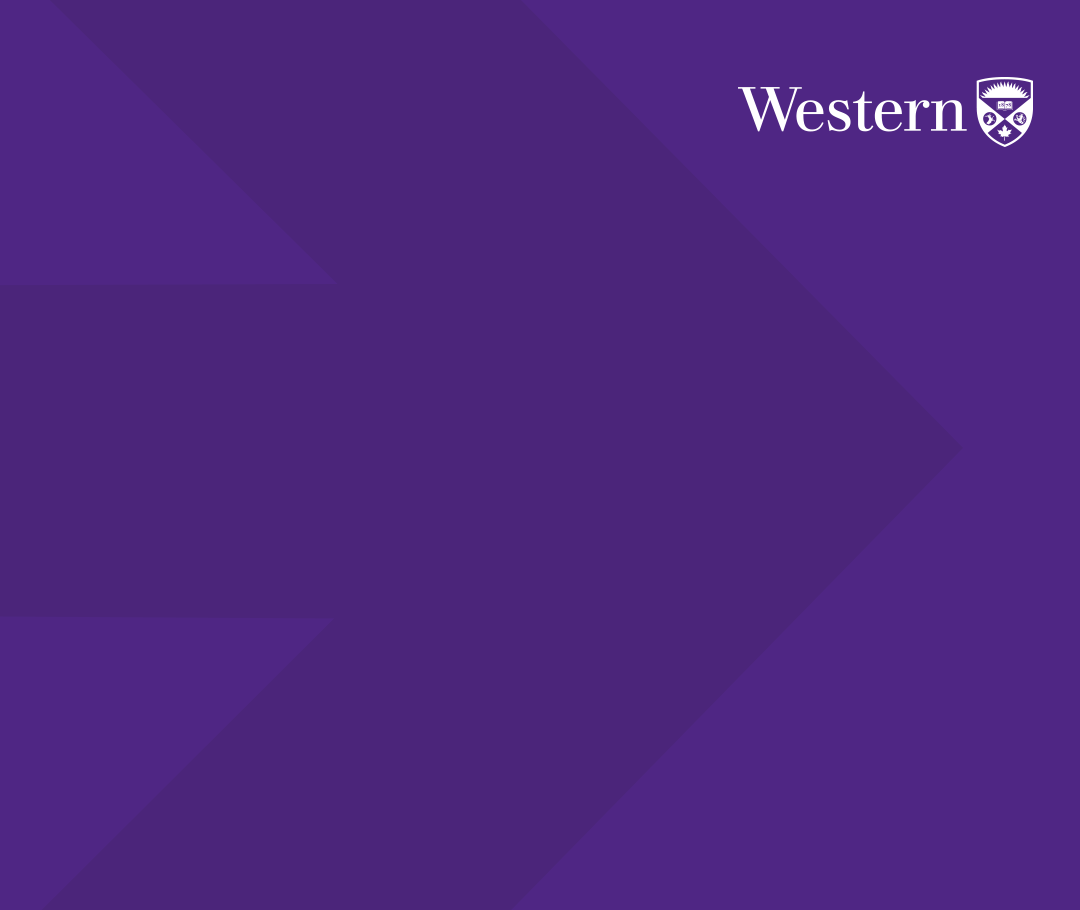
COVID-19 has caused global upheaval. It has also inspired international cooperation and innovation, on a scale that would have been considered impossible even 18 months ago.
Research collaborations have led to new therapies and vaccines, all developed and delivered at an unprecedented pace.
Our public health responses – the successes and missteps alike – have been proof points that we can do better and be better.
Now a singular new consensus has emerged: this momentum and collaboration must continue beyond the current crisis. These hard-won lessons must not be wasted.
Public institutions, corporations and individual citizens are forging ahead on priorities committed to creating a safer, healthier, cleaner, more sustainable and more equitable world.
And Western University researchers, working with colleagues at home and around the globe, are helping write that new story.
The following chapters highlight some of the important work underway at Western.
Chapter 1
Getting patient care back on track
Within the first three months of the pandemic, hospitals around the world cancelled 28 million elective surgeries. Hip and knee replacements, gallbladders, hernias, even some cancer surgeries – all important, all too risky.
“We’ve never been in a situation before where surgery just stopped, everywhere,” says Janet Martin of Western’s Schulich School of Medicine & Dentistry. “We had to find out what the impact was and how we could proceed safely.”
Martin co-leads a 122-country project that has developed a comprehensive user’s guide to help hospitals and policymakers get back on track.
The team’s most recent research also shows that prioritizing pre-surgery patients for vaccination could save 60,000 lives annually.
Chapter 1 (continued)
Who should be first?
Access to healthcare is as much about ethics as it is about medicine and logistics.
“Most issues around COVID-19 have scientific elements but, they also require judgments – thinking about trade-offs and their implications and whether this is the right thing to do given the values we share as a society,” says Western bioethicist Maxwell Smith.
An advisor on bioethics and vaccine distribution to the Ontario government and to the World Health Organization on ethical issues in the global pandemic response, Smith has grappled with these questions during other pandemics.
Smith believes that preventing the next one depends largely on the ethical choices we make now.
“Given the economic impact of this pandemic, my worry is that we'll see less funding to our health and social systems in the years to come. Instead, it should be the opposite. Following a massive crisis like this, we really need to reinvest and think about public health more seriously.”
Chapter 1 (continued)
Answering some tough ethical questions
The pandemic has tested our shared societal values like few other crises in recent times. Hear from bioethicist Maxwell Smith as he ponders some key questions many of us are asking.
- Should countries that haven’t invested in vaccine development get less share or later access to vaccines?
- Should vaccinations be mandatory for healthcare workers?
- Should international travellers be required to have a ‘vaccination passport’ proving they have received a COVID-19 vaccination?
- Some final thoughts...
Chapter 2
The long-term impact on human health
Months after their other symptoms abated, some COVID patients say they still can’t think straight. According to Western neuroscientist, Adrian Owen, the ‘brain fog’ is real.
His team’s international study on the neurological impact of COVID-19 makes important connections that show the virus impairs problem-solving regions of patients’ brains. Further work is underway to determine if the brain is capable of healing itself.
“Even if only a very small percentage of infected people have long-term mental-health, neurological or cognitive issues, that’s a staggering, continuing human cost. We’ll deal with the repercussions of that for years and years to come.”
Chapter 2 (continued)
Long-term education disruption
“We are witnessing the greatest mass disruption to education in modern human history,” emphasizes global education professor Prachi Srivastava.
The first phase of school closures affected nearly 1.7 billion students worldwide, including more than five million in Canada.
Srivastava maintains the long-term toll will be staggeringly high, borne disproportionately by disadvantaged children and youth.
The result: learning and earning loss; psychosocial harms; risks to child protection and social development; and reduced life opportunities.
Srivastava has been advising on equity-focused policy and planning, including for the G20, as governments consider how to reopen schools, mitigate harm and move beyond first response to recovery.
She and her team have also created the COVID-19 School Dashboard, an open-source tool mapping COVID-19 cases in Ontario schools and connecting the data to the schools’ social demographics.
“The pandemic exposed that globally, and in Canada, education systems weren’t ready for crisis. The impact isn’t just immediate. It's going to be generational.”
Chapter 3
Addressing issues of violence and inequity
While the world works flat out to address the most immediate public health issues, interrelated challenges are just under the surface.
“We are dealing in multiple pandemics,” says Western professor Nadine Wathen, who studies social justice, public policy and gender-based violence.
Wathen cites the impossible choice faced by many women experiencing domestic violence who can’t safely stay in their homes, nor safely leave amidst stay-at-home orders.
She notes the ballooning incidence for people who are jobless, homeless, mentally ill and addicted.
“It’s horrific for them, and especially tough because the organizations that are in place to serve them are also extraordinarily vulnerable and marginalized.”
Chapter 3 (continued)
Keeping focused on global health equity
Virologist Eric Arts is in dogged pursuit of competing pandemics, at home and abroad.
An HIV/AIDS researcher, he is also head of Western’s one-of-a-kind Imaging Pathogens for Knowledge Translation (ImPaKT) facility. His team is testing dozens of lifesaving COVID-19 treatments, from new vaccines to disinfection technologies and anti-viral products while also providing important virus surveillance for public health.
But he worries that our singular focus on this pandemic may shove research and treatment for other outbreaks, epidemics and diseases to the margins.
Even a small dip in treating tuberculosis – which kills more than 1.4 million people a year, most in developing countries – could be catastrophic, the World Health Organization warns.
Or consider the consequences of shifting research dollars from HIV/AIDS or malaria or cholera, or the next Ebola or SARS.
“The implications of not paying attention to these diseases, of actually diverting funding from them, is that we might solve the COVID crisis but be left with a much worse one,” says Arts.
Chapter 3 (continued)
Pandemic widens fissures
At the beginning of the pandemic, COVID-19 was termed the great equalizer, affecting rich and poor alike.
It quickly became apparent that nothing was further from the truth.
Western demographer Kate Choi's mapping data shows neighbourhoods with higher percentages of Black Canadians and low-income residents have been disproportionately hard hit by COVID-19.
These individuals have higher representation in frontline work, have more pre-existing conditions and live in neighborhoods with fewer amenities that might allow them to mitigate infection – all circumstances that have created a storm surge of higher rates of infection and death.
It’s a stark example of the close link between socioeconomic status, systemic inequities and health, Choi says.
“COVID-19 identified fissures that existed in our society, and amplified inequalities,” Choi says. “The pandemic has unveiled that we are as strong as the weakest in our society. Taking adequate care of them is the key to optimizing our wellbeing as a society and is essential to a healthy recovery.”
Infographic
COVID-19 infections by Neighbourhood Socioeconomic Status (Canada)
COVID-19 infections by Neighbourhood Socioeconomic Status (Canada)
Chapter 4
Finding the balance through data science
Western computer scientist Anwar Haque is committed to finding solutions that balance privacy, safety and the economy through data analysis.
An expert in smart infrastructure, cybersecurity and the technology of autonomous drones, Haque has developed a tool to analyze the privacy and efficacy of virtual contact tracing apps.
Haque is also working to create a dashboard that will quantify how differences in lockdown measures influence both health and the economy.
“We need to know, if we restrict store hours or close sports fields or schools or restaurants, what is the impact on the infection rate? How will it affect the economy? Policymakers can then make informed decisions on how best to reduce the viral spread while minimizing economic disruptions.”
Chapter 4 (continued)
Smart cooling for temperature-sensitive vaccines
Before the pandemic started, engineering professor Kamran Siddiqui pondered how to transport organs for transplant more effectively than the current, imprecise cooler-and-ice method.
He has devised and filed a patent for a smart, portable box, controlled and monitored remotely, can regulate its own temperature.
Its potential for transporting temperature-sensitive vaccines – particularly to remote and northern communities – quickly became apparent.
“If you’re relying on a normal cooler with cold packs for the ‘last mile’ from the distribution centre to the vaccination centre, the temperature could drop below or go above the ideal range and ruin the entire shipment. This device could solve that problem.”
Chapter 5
Being better prepared
For all the tough truths of this pandemic, some experts say this may be the most sobering: it didn’t have to be this way.
Canada had sold off homegrown vaccine production, tossed tonnes of ‘expired’ facemasks and forgot infection-control measures that SARS, MERS and Ebola had tried to teach us.
“We've had a half-century of feeling we had infectious diseases largely beat,” says epidemiologist Greta Bauer. “Now we're facing this other reality, and we have complex issues we need to solve.”
Bauer, who studies how social conditions affect the health of marginalized and vulnerable populations, hopes it’s not too late to change in time for the next pandemic.
“If we’ve learned anything, it’s that we need to act, even when it seems too early, and not wait until it’s a crisis before we intervene. That’s the public-health paradox: if you do it well, it seems like you didn’t need to act at all.”
Chapter 5 (continued)
For the greater good
“The pandemic has presented us with a tremendous opportunity to shift gears in the future,” says Bipasha Baruah, an expert in the global ‘trilemma’ of economic security, equity and environmental sustainability.
It has provided insights into who, and what, gets left behind in the quest for unlimited growth on a planet reaching its biophysical limits, she says.
And the crisis has been a laboratory that’s provided data in support of previously polarizing measures such as universal basic income, work-from-home and flex hours.
“Despite how devastating the pandemic has been, it has been a watershed moment for the social and political acceptability of some of these programs across the ideological spectrum,” Baruah says.
“I hope this can be the start to reforming employment norms around the world: how we work, how we choose to work, how we can have social protections independent of employment status.”
Chapter 5 (continued)
A new blueprint for preparedness
Researcher and intensive care unit physician Doug Fraser is much more optimistic about both human nature and the promise of scientific advances and says we’ve made remarkable strides in record time.
The pandemic – the first one our generation has faced at a global level – has shown people do collaborate for the greater good, he says.
Fraser is building on that belief as he works with Canadian political leaders to shape two national rapid-response roadmaps for the next public-health crisis: one to mobilize diverse research teams before a crisis hits; the other, to deploy urgent community healthcare using telemedicine, paramedics and the military.
“We’re going to see increased capacity for swift action, more flexibility in the system – a new world of co-operation,” he says.
Meet the Researchers
Western is home to 100 researchers (and counting) who are tackling the fallout of COVID-19 from every angle. We are proud to feature the twelve individuals below, and will continue to add new stories here and on Western News.
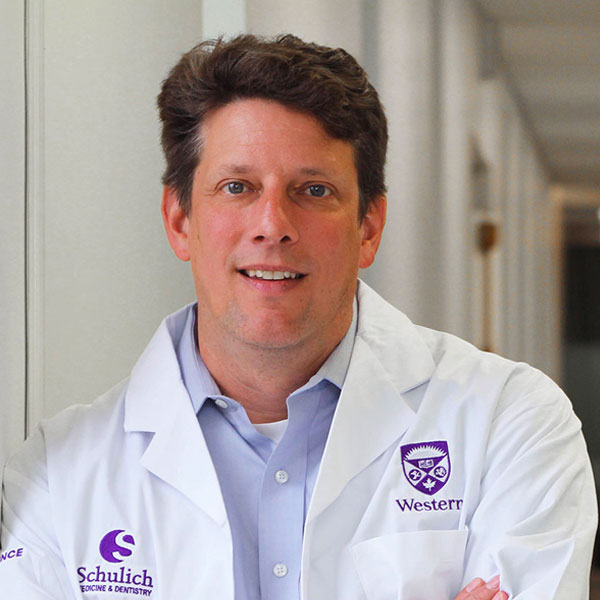
Eric Arts
Schulich Medicine & Dentistry
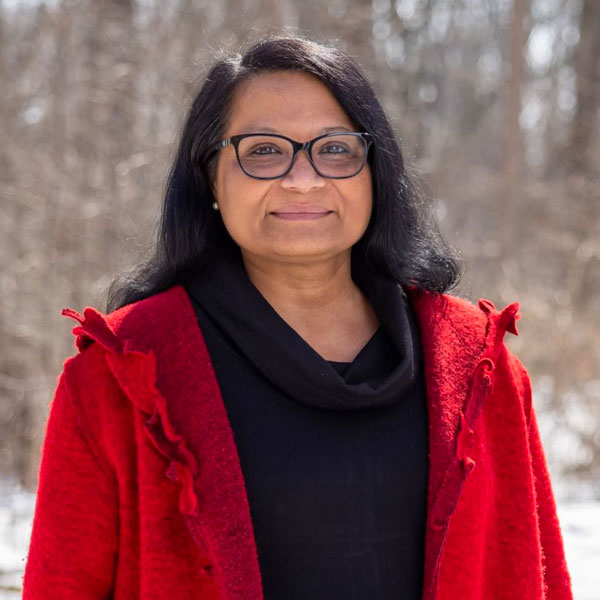
Bipasha Baruah
Faculty of Arts & Humanities
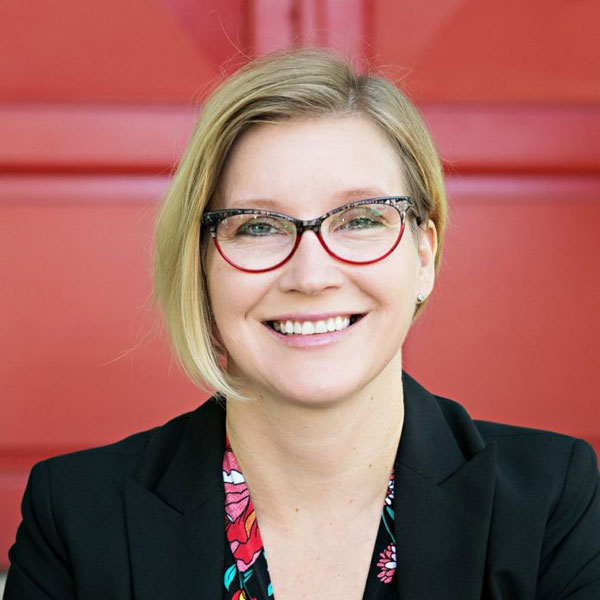
Greta Bauer
Schulich Medicine & Dentistry
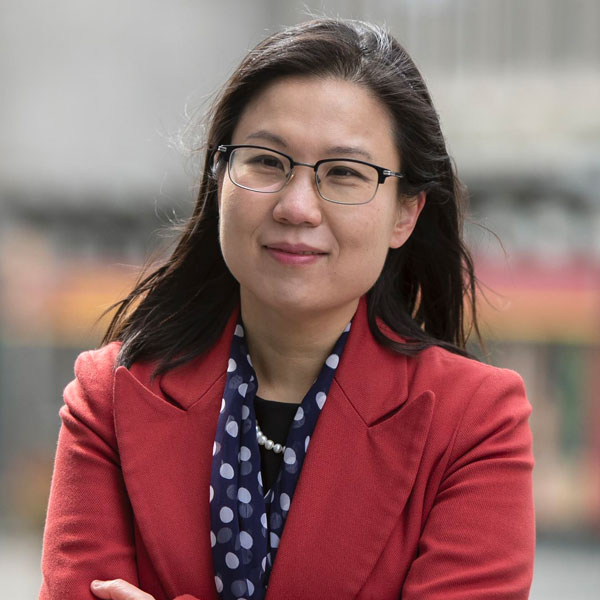
Kate Choi
Faculty of Social Science
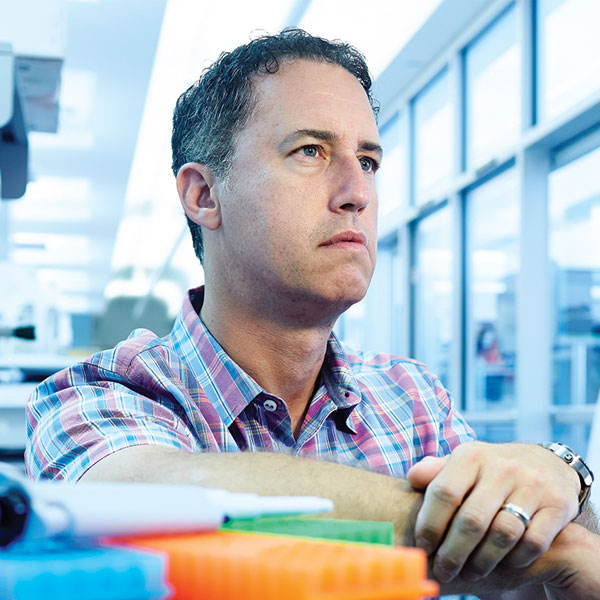
Doug Fraser
Schulich Medicine & Dentistry
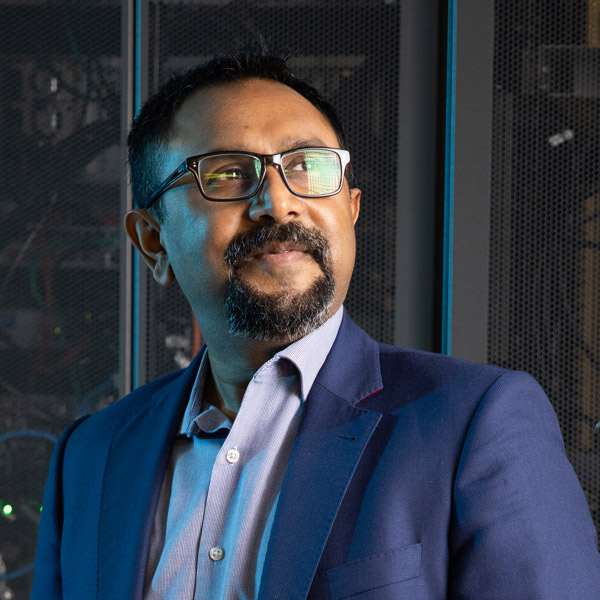
Anwar Haque
Faculty of Science
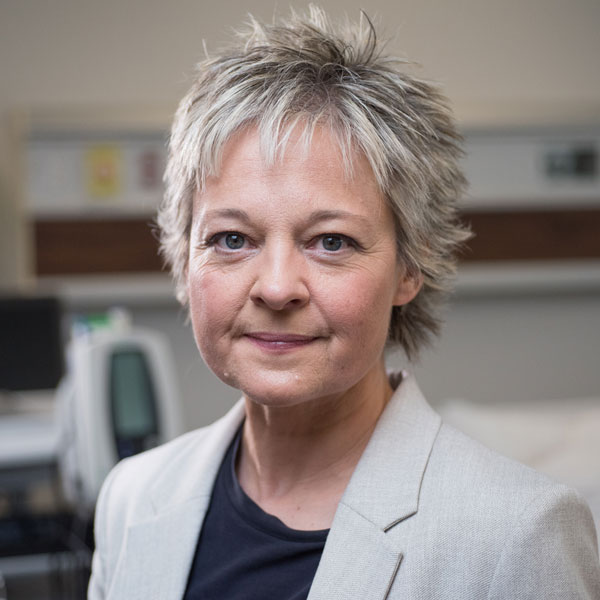
Janet Martin
Schulich Medicine & Dentistry
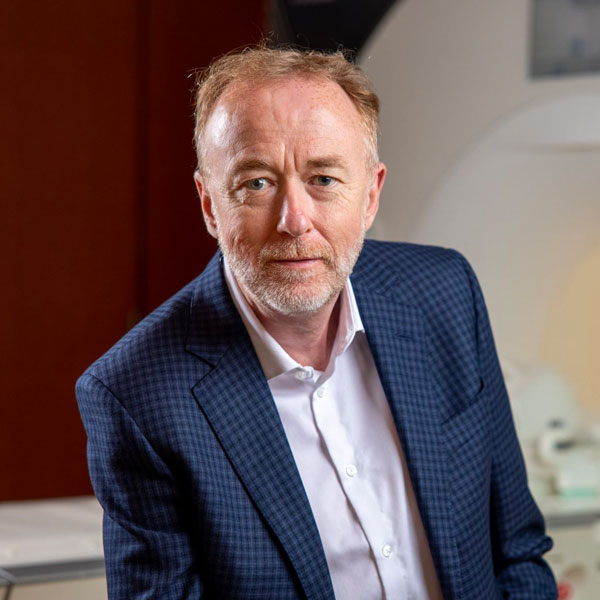
Adrian Owen
Brain & Mind Institute
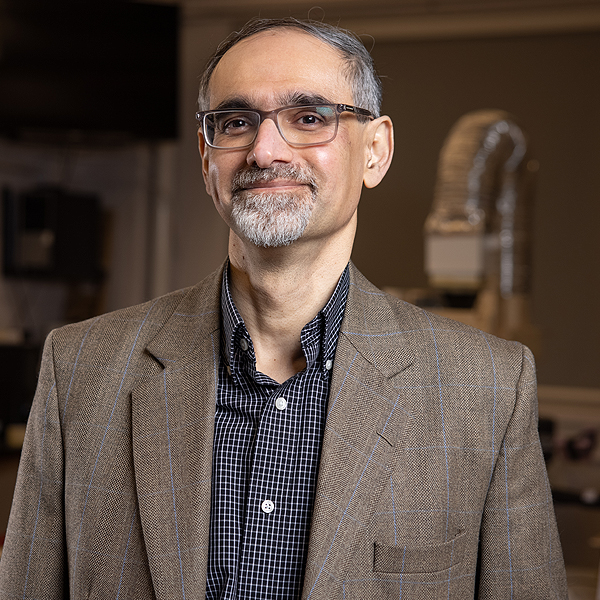
Kamran Siddiqui
Faculty of Engineering
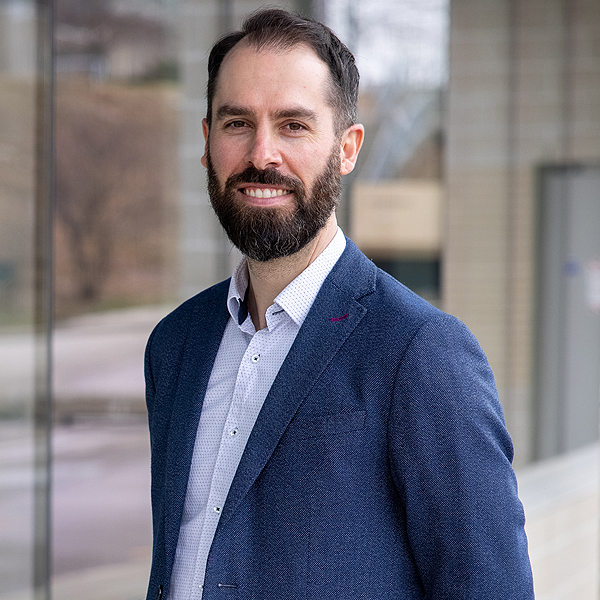
Maxwell Smith
Faculty of Health Sciences
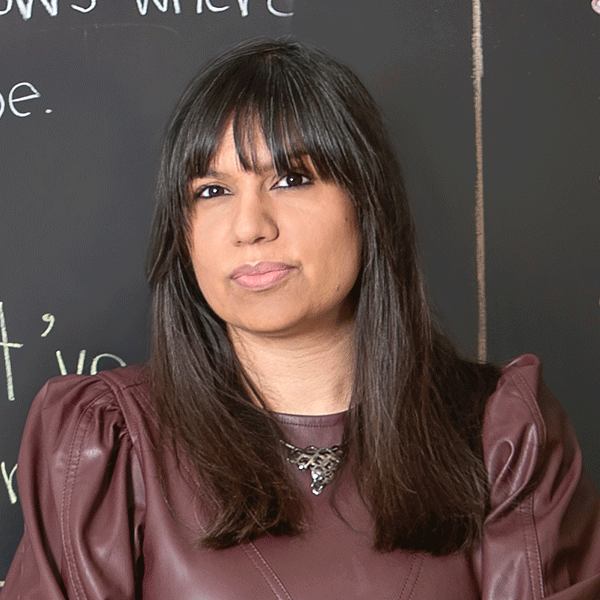
Prachi Srivastava
Faculty of Education
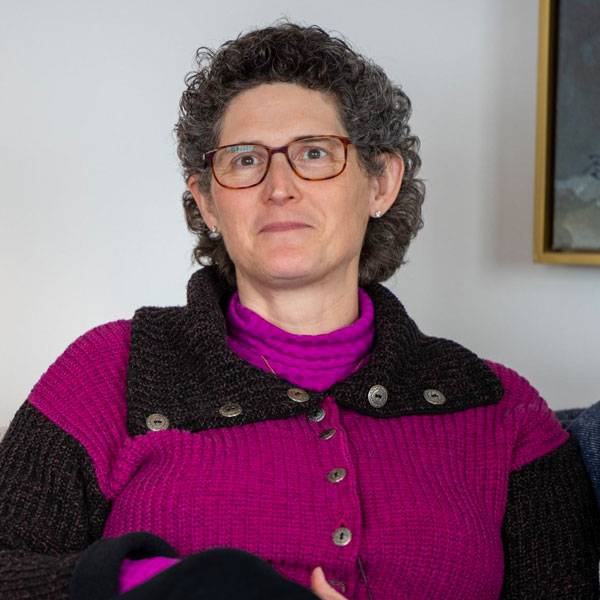
Nadine Wathen
Faculty of Health Sciences